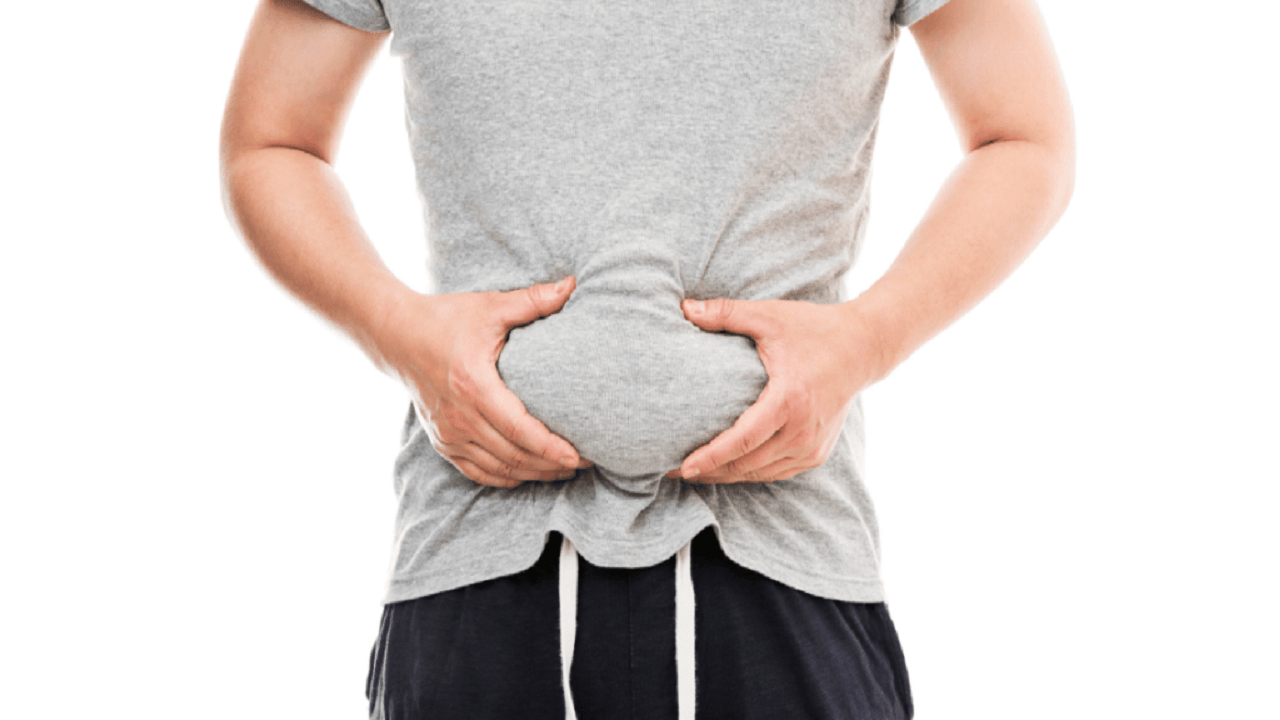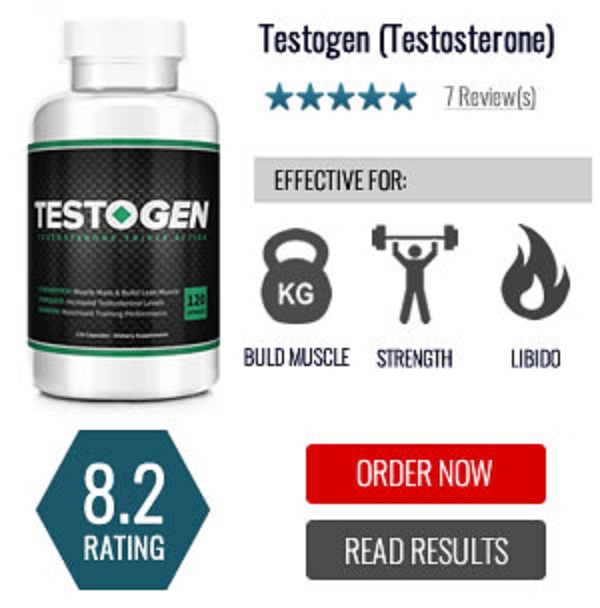Does Low Testosterone Cause Weight Gain
Contents
- 1 Does Low Testosterone Cause Weight Gain
- 2 Understanding Testosterone: The Male Hormone Powerhouse
- 3 The Weight Gain Connection: How Low Testosterone Might Tip the Scales
- 4 Testosterone and Weight Gain: How Obesity Can Affect Testosterone
- 5 Recognizing the Signs and Symptoms of Low Testosterone
- 6 Getting Diagnosed: A Crucial Step
- 7 Treatment Options for Low Testosterone
- 8 Navigating Weight Gain with Low Testosterone: A Multi-Pronged Approach
- 9 Living a Healthy Life Despite Low Testosterone
- 10 Beyond Weight Gain: Addressing Other Health Concerns with Low Testosterone
- 11 Additional Considerations and Important Disclaimers:
- 12 Conclusion: A Balanced Approach to Managing Low Testosterone and Weight Gain
- 13 FAQs on Low Testosterone and Weight Gain
- 14 References:
The frustration of unexplained weight gain is a common experience. You might be diligently following a healthy diet and exercise routine, yet the numbers on the scale just won’t budge. If you’re a man over 30, low testosterone could be a contributing factor to this struggle.
This article delves into the intricate relationship between testosterone and weight gain, exploring the science behind it, the potential mechanisms at play, and how to navigate this challenge.
Related Article: Best Testosterone Boosters on the Market | The Comprehensive Guide
Understanding Testosterone: The Male Hormone Powerhouse
Testosterone, the primary male sex hormone, plays a vital role in various bodily functions. It’s responsible for:
- Muscle growth and maintenance
- Sperm production
- Bone density
- Sex drive (libido)
- Energy levels
- Mood regulation
As men age, testosterone levels naturally decline. This gradual decrease starts around the age of 30 and continues at a rate of about 1% per year. However, some men experience a more significant drop, leading to a condition called testosterone deficiency or hypogonadism.
The Weight Gain Connection: How Low Testosterone Might Tip the Scales
While not the sole culprit, low testosterone can contribute to weight gain in several ways:
- Reduced Muscle Mass: Testosterone is a key player in muscle building and maintenance. When levels dip, muscle mass begins to decrease. This shift in body composition is crucial because muscle burns more calories at rest compared to fat. Less muscle translates to a slower metabolism, meaning your body burns fewer calories throughout the day, making it easier to gain weight.
- Increased Fat Storage: Low testosterone levels can influence how your body stores fat. It might lead to a redistribution of fat from peripheral areas (hips, thighs) to visceral fat, which accumulates around your abdomen. This belly fat is not only aesthetically undesirable but also linked to a higher risk of heart disease, type 2 diabetes, and other health problems.
- Changes in Appetite and Metabolism: Low testosterone can alter how your body regulates hunger and satiety hormones. You might experience increased cravings for sugary or high-fat foods, leading to overeating. Additionally, testosterone deficiency may impact leptin sensitivity, a hormone that signals fullness. This can make it harder to feel satisfied after a meal, further contributing to weight gain.
- Decreased Motivation and Activity Levels: The fatigue and decreased energy associated with low testosterone can significantly impact your motivation to exercise. This lack of physical activity further hinders calorie burning and muscle building, creating a vicious cycle that promotes weight gain.
Testosterone and Weight Gain: How Obesity Can Affect Testosterone
Interestingly, the relationship between testosterone and weight goes both ways. Obesity itself can suppress testosterone production. Excess fat tissue produces an enzyme called aromatase, which converts testosterone into estrogen. This rise in estrogen levels disrupts the delicate balance of hormones and further reduces testosterone production.
Recognizing the Signs and Symptoms of Low Testosterone
While weight gain can be a symptom of low testosterone, it’s not the only one. Here are some other signs to look for:
- Decreased sex drive (libido)
- Erectile dysfunction
- Difficulty achieving or maintaining an erection
- Reduced sperm count
- Fatigue and low energy
- Difficulty sleeping
- Irritability and mood swings
- Loss of muscle mass
- Increased body fat, particularly around the abdomen
- Breast enlargement (gynecomastia)
Getting Diagnosed: A Crucial Step
If you suspect you might have low testosterone, it’s important to seek professional medical advice. A doctor can assess your symptoms, perform a physical examination, and order blood tests to measure your testosterone levels. Early diagnosis and appropriate treatment can help improve your overall health and well-being.
Treatment Options for Low Testosterone
If your doctor confirms low testosterone, they can discuss various treatment options based on your individual needs and preferences. Some common approaches include:
- Testosterone Replacement Therapy (TRT): This involves administering testosterone through various methods, such as gels, patches, injections, or implants. TRT can effectively raise testosterone levels and alleviate symptoms associated with deficiency. However, it’s crucial to discuss potential side effects with your doctor before starting TRT.
- Lifestyle Modifications: Certain lifestyle changes can help optimize testosterone levels naturally. These include:
- Maintaining a healthy weight: Losing weight, particularly belly fat, can improve testosterone production.
- Eating a balanced diet: Consume a diet rich in fruits, vegetables, whole grains, and lean protein, while limiting processed foods, sugary drinks, and unhealthy fats.
- Regular exercise: Engaging in regular physical activity, especially strength training, can boost testosterone levels and build muscle mass.
- Getting enough sleep: Aim for 7-8 hours of quality sleep each night. Sleep deprivation can negatively impact testosterone production.
If you’re struggling with weight gain and suspect low testosterone might be playing a role, don’t despair. Here’s a roadmap to tackle this challenge effectively:
1. Seek Medical Evaluation:
Getting a proper diagnosis from a doctor is the first step. They can determine the cause of your weight gain and recommend the most appropriate treatment plan. Blood tests will confirm testosterone levels, and your doctor might explore other potential underlying health issues.
2. Optimize Your Diet:
Food plays a crucial role in managing weight and supporting healthy testosterone levels. Focus on:
- Whole, Unprocessed Foods: Prioritize fruits, vegetables, whole grains, and lean protein sources like fish, poultry, and legumes. These foods provide essential nutrients that optimize your body’s functions, including testosterone production.
- Healthy Fats: Include healthy fats like those found in avocados, nuts, seeds, and olive oil. These fats promote satiety, support hormone balance, and fuel your body for exercise.
- Limited Sugar and Refined Carbs: Excessive sugar and refined carbohydrates can lead to blood sugar spikes and crashes, contributing to weight gain and potentially impacting testosterone levels.
- Stay Hydrated: Drinking plenty of water keeps you feeling full, helps regulate metabolism, and aids in various bodily functions.
3. Prioritize Regular Exercise:
Engaging in regular physical activity is vital for managing weight and boosting testosterone. Here’s how:
- Strength Training: Aim for strength training exercises 2-3 times a week. Building muscle mass increases your metabolic rate, helping you burn more calories at rest. This also counters the muscle loss associated with low testosterone.
- Cardio: Incorporate moderate-intensity cardio exercises like brisk walking, swimming, or cycling for at least 30 minutes most days of the week. Cardio helps burn calories and improves overall fitness.
- Maintain Consistency: Consistency is key. Regular exercise, even in shorter bursts, is more effective than sporadic intense workouts.
4. Prioritize Quality Sleep:
Sleep deprivation wreaks havoc on your hormones, including testosterone. Aim for 7-8 hours of quality sleep each night. Develop a relaxing bedtime routine, create a sleep-conducive environment, and limit screen time before bed.
5. Consider Stress Management Techniques:
Chronic stress can elevate cortisol levels, which can negatively impact testosterone production. Explore stress management techniques like yoga, meditation, deep breathing exercises, or spending time in nature.
6. Explore Natural Testosterone-Boosting Supplements (with Caution):
Certain supplements, like D-aspartic acid, zinc, and fenugreek, might offer some benefits for boosting testosterone. However, research is ongoing, and the effectiveness can vary. It’s crucial to consult your doctor before starting any supplements, as they can interact with medications or have side effects.
7. Manage Expectations and Be Patient:
Addressing weight gain and optimizing testosterone levels can take time and effort. Consistency with diet, exercise, and lifestyle modifications is key. Celebrate small victories, and don’t get discouraged by setbacks.
8. Track Your Progress:
Monitoring your progress motivates you and helps you identify what works best for you. Track your weight, body measurements, dietary intake, exercise routine, and sleep patterns.
Remember, open communication with your doctor throughout this process is vital. They can monitor your progress, adjust your treatment plan if needed, and address any concerns you might have.
Living a Healthy Life Despite Low Testosterone
While low testosterone can present challenges, it doesn’t have to dictate your health and well-being. By following a comprehensive approach that combines medical treatment (if needed) with a healthy lifestyle, you can manage your weight, optimize your testosterone levels, and experience a significant improvement in your overall health and quality of life.
Beyond Weight Gain: Addressing Other Health Concerns with Low Testosterone
Low testosterone can manifest in various ways beyond weight gain. Let’s explore some additional health concerns and how to address them:
- Decreased Sex Drive (Libido): This is a common symptom of low testosterone. Testosterone replacement therapy (TRT) is often effective in improving libido. Additionally, addressing underlying psychological factors like stress and anxiety can also contribute to a healthier sex life.
- Erectile Dysfunction (ED): Low testosterone can contribute to ED. TRT can help, but it’s important to note that it’s not always the sole solution. Underlying medical conditions or lifestyle habits may also play a role. Consult your doctor for a comprehensive evaluation and discuss treatment options tailored to your specific needs.
- Mood Swings and Irritability: Testosterone fluctuations can impact mood regulation, leading to irritability, depression, or anxiety. TRT can help, but addressing stress through relaxation techniques and potentially seeking therapy can also be beneficial.
- Bone Health: Testosterone plays a crucial role in bone density. Low testosterone can increase the risk of osteoporosis, especially in older men. Maintaining a healthy diet rich in calcium and vitamin D, engaging in weight-bearing exercises, and exploring bone-strengthening medications with your doctor are crucial for bone health.
Additional Considerations and Important Disclaimers:
- Testosterone Replacement Therapy (TRT) is not a one-size-fits-all solution. It’s a medical intervention with potential side effects such as increased risk of blood clots, sleep apnea, and prostate enlargement. Discussing the risks and benefits with your doctor is crucial before starting TRT.
- There might be underlying medical conditions causing low testosterone. Thyroid issues, pituitary gland problems, and certain medications can all contribute to low testosterone levels. Addressing these underlying conditions might be necessary to optimize testosterone production naturally.
- Lifestyle modifications are essential regardless of treatment choice. Even with TRT, maintaining a healthy diet, engaging in regular exercise, managing stress, and getting enough sleep are crucial for overall health and well-being.
- Seek professional guidance. Don’t self-diagnose or attempt to treat low testosterone on your own. Consult a qualified healthcare professional for proper diagnosis, treatment recommendations, and ongoing monitoring.
Conclusion: A Balanced Approach to Managing Low Testosterone and Weight Gain
Low testosterone can be a frustrating experience, potentially impacting weight management and overall health. However, with proper diagnosis, a combination of medical treatment (if needed), and a healthy lifestyle can help you manage weight gain, improve testosterone levels, and experience a significant improvement in your quality of life. Remember, communication with your doctor is key to navigating this challenge effectively and achieving optimal health.
FAQs on Low Testosterone and Weight Gain
Q: How does low testosterone affect weight gain?
A: Low testosterone can contribute to weight gain in several ways, including decreased muscle mass, increased fat storage, changes in appetite and metabolism, and decreased motivation for exercise.
Q: Are there any symptoms of low testosterone besides weight gain?
A: Yes, several symptoms can accompany low testosterone, including decreased sex drive, erectile dysfunction, fatigue, difficulty sleeping, mood swings, and loss of muscle mass.
Q: How is low testosterone diagnosed?
A: Diagnosis involves a consultation with a doctor, a physical examination, and blood tests to measure testosterone levels.
Q: What are the treatment options for low testosterone?
A: Treatment options can include testosterone replacement therapy (TRT), lifestyle modifications like diet and exercise changes, and addressing underlying medical conditions that might be affecting testosterone production.
Q: Are there any natural ways to boost testosterone?
A: Certain lifestyle changes can potentially support healthy testosterone levels, such as maintaining a healthy weight, eating a balanced diet, engaging in regular exercise, managing stress, and getting enough sleep. However, consulting your doctor about natural testosterone-boosting supplements is crucial before starting them.
Q: Are there any side effects associated with testosterone replacement therapy?
A: Yes, TRT can have potential side effects like increased risk of blood clots, sleep apnea, and prostate enlargement. Discussing these risks and benefits with your doctor is essential before starting TRT.
References:
- American Urological Association. (2020, September 11). Low Testosterone. https://www.auajournals.org/doi/10.1016/j.juro.2018.03.115
- Mayo Foundation for Medical Education and Research. (2021, August 21). Low testosterone in men. https://www.mayoclinic.org/
- National Institute on Aging. (2020, October 28). Testosterone and Aging. https://pubmed.ncbi.nlm.nih.gov/19165223/
- Testosterone and obesity. (2014, December). PubMed Central. https://www.ncbi.nlm.nih.gov/pmc/articles/PMC3120209/
- What Does Testosterone Have To Do With Weight Loss? (n.d.). Men’s T Clinic. https://www.menstclinic.com/contents/more/what-to-expect



